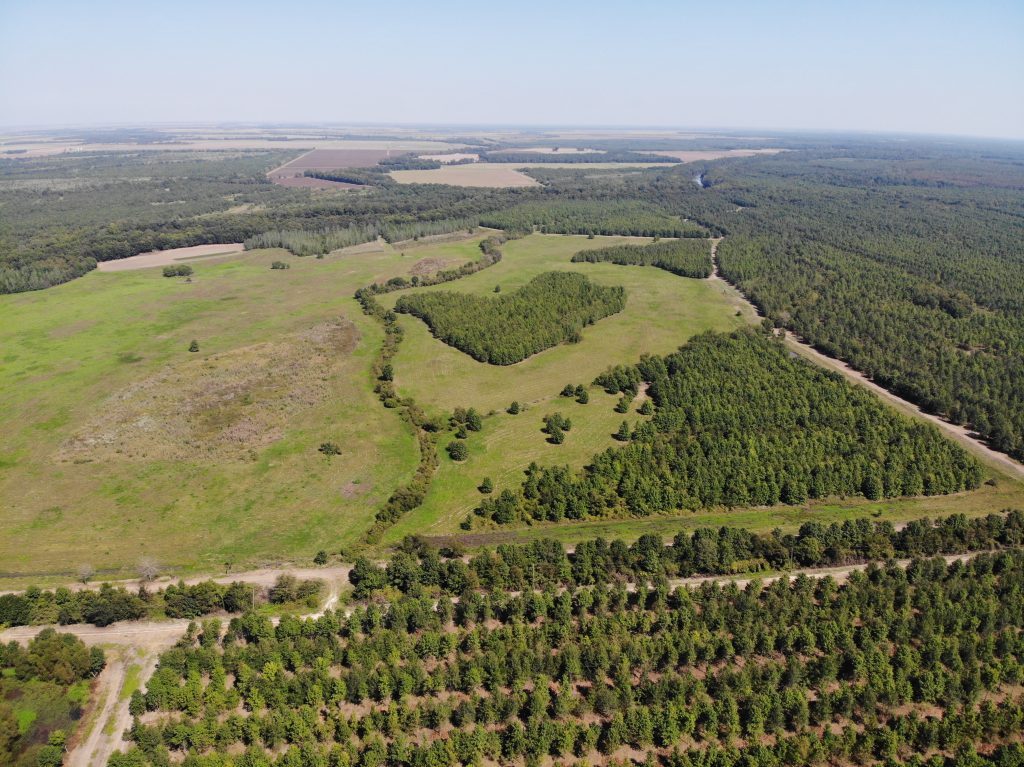Farming for Habitat: Easements Make Conservation Easy
Renewed and updated every five years, the Farm Bill is a package of federal legislation with many far-reaching benefits, from helping rural farmers to conserving critical natural resources on private lands. This includes bolstering conservation easement programs administered by the USDA Natural Resources Conservation Service.
The Agricultural Conservation Easement Program is one of two current easement programs offered by the NRCS. The ACEP provides financial and technical assistance to land-owning entities to help conserve agricultural lands and wetlands, while providing many other benefits.
For instance, the NWTF and Arkansas Game and Fish Commission have partnered with NRCS through a National Fish and Wildlife Foundation Lower Mississippi Alluvial Valley Restoration Fund grant. Through this grant, NWTF is able to provide landowners with assistance through the ACEP Wetland Reserve Enhancement program (the WRE is a component of the ACEP) in Arkansas to carry out high-priority conservation projects. The WRE is a voluntary program through which the NRCS helps private and tribal landowners protect, restore and enhance wetlands which have been previously degraded due to agricultural uses. Since 2014, the NRCS in Arkansas has enrolled and restored 278,000 acres of wetlands and bottomland hardwoods under the ACEP-WRE program.
NWTF cooperative forester Sid Munford directly works with private landowners and explains how the easements can benefit their property for wildlife.
Munford explained that most landowners he’s worked with are interested in helping draw in and retain wild turkey populations on their properties. Munford develops project plans accordingly to ensure that best management practices take place on private landowners’ properties to reach wetland conservation objectives while at the same time increasing habitat for the wild turkey’s annual-cycle needs.
As a dedicated conservationist working under NRCS easement programs, Munford performs an array of duties, including reforestation design development on WRE restoration projects, coordinating and monitoring tree-planting operations, surveying older plantings to assess seedling survival, marking timber harvests for habitat improvement, assessing older plantations to determine management needs and consulting with landowners in the program to help them meet management goals.
The overall ecological value of the landscape is increased through this work and bridges the connectivity of a healthy ecosystem with public and private lands. For instance, one of the main focuses of the WRE program is bolstering the health of water and water systems in the Mississippi Alluvial Valley, which once supported 24 million acres of floodplain forest, swamp, slough and riverine habitat. However, the area is now considered the Southeast’s most deforested region.

Through vital programs, such as NRCS easements, the NWTF and partners are working to bring the Mississippi Alluvial Valley back to its former glory. This work is made possible thanks to pivotal funding provided in the Farm Bill.
Learn more about how Farm Bill funding is helping deliver the NWTF mission on private lands, from increasing wild turkey habitat to increasing public hunting access.
If you are a private landowner and are interested in learning more about these programs, visit https://www.nrcs.usda.gov/contact/find-a-service-center.
Go to Farming4Habitat.org to learn more information on Farm Bill programs that benefit fish and wildlife.
